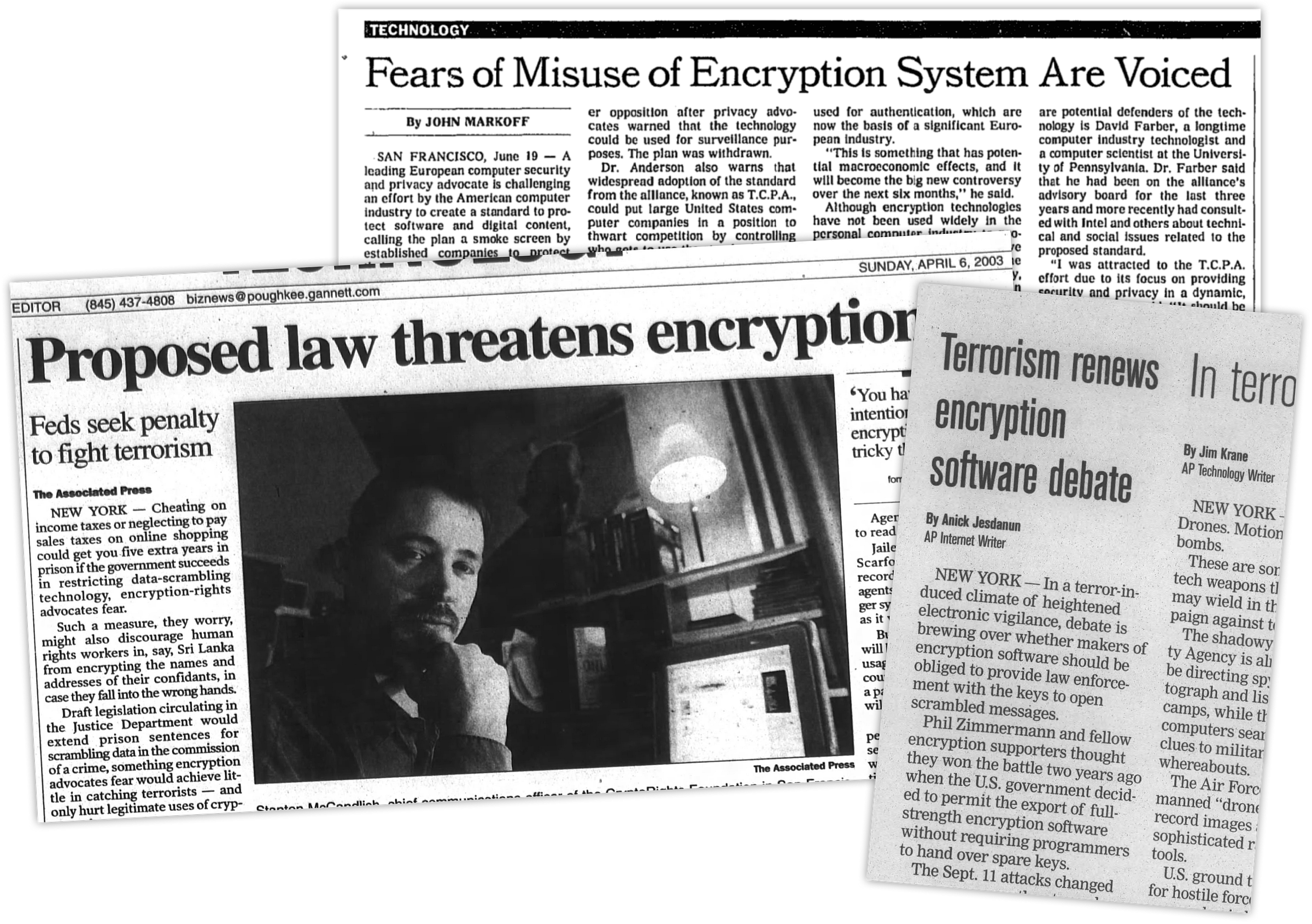Joe Biden Kicked Off the Encryption Wars
The Crypto Wars, Part - 1
In 1991 Joe Biden introduced two bills containing anti-encryption language to prevent private emails: the Comprehensive Counterterrorism Act & the Violent Crime Control Act. He had effectively declared war on math, but why?
Encryption - once mainly used by government - had increasingly become appealing to consumers with the rise of personal computers and then the internet. The prospect of democratized access to encryption worried governments and law enforcement agencies, like the FBI, an agency the Electronic Frontier Foundation claimed had persuaded Biden to attack encryption.
ℹ︎ In the early 1990s encryption was still treated as a munition and subject to export controls, software companies had to sell different versions overseas.
While Biden’s bills didn’t become law, his attempt to prohibit email encryption gave programmer Phil Zimmerman the motivation to finish and release his open source encryption project ‘Pretty Good Privacy’ (PGP.) PGP would spread rapidly throughout the early internet - including across boarders - making it much hard to prohibit.
Biden had inadvertently made encryption harder to control by prompting the release of open source encryption.
In 1993 a Federal Grand Jury opened an investigation into exports of cryptography software with regards to PGP and Phil Zimmerman, who later admitted “I was quite guilty.” Zimmerman’s emails were - ironically - subpoenaed, and he faced possible jail-time for breaking export laws.
Meanwhile the Clinton Administration started pushing the NSA’s ‘Clipper Chip’ - a computer chip that would allow the government to break any and all encryption. The ultimate goal was to make the chip mandatory. While Biden didn’t comment on the Clipper Chipper at the time, he didn’t speak against it as some other Democrats did.
Government snooping wasn’t the only concern raise about the Clipper Chip, if the encryption key was cracked or leaked, criminals would have free rein to cause havoc. This fear was proven out in 1994 when computer scientist Matt Blaze figured out how to break Clipper Chip encryption, and again in 1995 when a French student broke the weakened encryption Netscape were forced to ship its web browser with abroad.
The Government investigation into PGP would hang over the head of Zimmerman for 3 years until 1996 - when the US government announced they didn’t plan to prosecute him. The same year the ‘Clipper Chip’ would be declared defunct and abandoned by the US Government.
In the following years encryption export controls remained, stunting the growth of US software companies in foreign markets. Technology industry figures like Microsoft founder Bill Gates and Google’s Eric Schmidt lobbied the government to relax rules, which eventually happened in 1999.
When terrorists struck on September 11th, 2001 encryption opponents would pin part-blame on the uncontrolled proliferation of strong encryption they warned against.
While the passing of the Patriot Act in response (a bill Joe Biden boasted he inspired) proved to cryptography proponents how important it was for encryption to be open and available to protect citizens from government over-reach. The following years saw renewed attacks on encryption in the name of fighting the war on terror.
It is worth keeping all this history in mind as we see governments - including the Biden administration - move to propose, pass (and force through) laws to in the name of stopping people using AI for nefarious ends. Especially when those same governments continue to try and undermine encryption.
You might also like:











Wow great article.
Great issue!